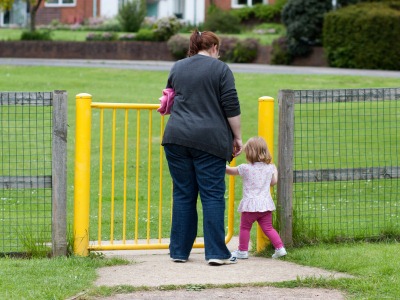
By Amanda Boorman
The general consensus, according to the popular press, is that the current Conservative adoption reforms are well intentioned. Michael Gove and Edward Timpson, with personal experience of adoption and fostering, have been the good guys. With consistent rhetoric of zero tolerance towards child neglect and a healthy Department for Education budget to back it up, the reform messages are ones that place adoption as the golden permanence option for children unable to live with their first families.
Good intentions
Good intentions can however, if not informed of the bigger picture, become just intentions. Intention to put the rights of children first, to provide opportunity, to share the many positives of adoption, to save money, to ultimately provide a win-win situation.
As the reform rolls out I become increasingly uncomfortable about where the good intentions will land those of us living in the world of adoption and those stepping into the journey as recent recruits.
I adopted 16 years ago. My intentions to become a parent by adoption were to make a loving commitment, to help a child waiting for a family. It was a somewhat naive decision to parent a child I didn’t “own” based upon reading of the plight of thousands of children “languishing” in care. I responded to an advert. It nudged me as adverts are intended to do.
Completely unprepared
Despite being a qualified social worker, I was completely unprepared for what unfolded into my life through adoption. Effected by dismal parenting skills, followed by systemic failure to support her birth family properly, my daughter was firmly rooted in what is now labelled as trauma based behaviour. Without exaggeration we stepped onto a rollercoaster that didn’t stop lurching up and down at high speed for over a decade, culminating in a devastating teenage derailment when my runaway daughter was severely harmed.
Within this process I was not a passive bystander. I fought constantly to gain the right support. I faced blank faces, brick walls, blame, shame and financial difficulty. By the time my daughter was 18, we hated social workers.
As a vulnerable adult my daughter now has good support and is catching up on the development she should have been enabled to achieve as a child. Our joint experience has led to us founding an independent peer support charity, The Open Nest.
Focus on recruitment
We began forming as Martin Narey’s report on adoption was published in The Times newspaper. The same newspaper I had written an article for several years earlier. An article from an adoptive parents perspective, urging Tony Blair to get adoption reform right. To become trauma aware, to train and supervise social workers properly, to fully understand adoptees and to support therapeutic interventions for all involved.
When we saw the recent reform intentions, read professor of social work at the University of Bristol, Julie Selwyn’s research that recorded the struggles adoptees face and heard the talk of support, we felt hopeful that finally there was very real potential for change. Other families would not have to face the intense challenges we had. On closer inspection however, the priority of current reform seems firmly based in recruitment.
Millions has been awarded to local authorities to improve their marketing and promotion of adoption. An increase in the speed and numbers of adoptions taking place is expected in return and a funded framework of centralising services away from local authorities is waiting in the wings for those authorities who fail.
Private and voluntary adoption and support organisations have been grouped together via Department for Education funding and an implied compliance via places on reform boards, to streamline the marketing of adoption as the premium permanence solution, as well as develop adoption support products.
As an outsider it’s tricky to trace the money, but in the language of approximates there has been around £250 million put into reform. Only £19.5 million of this into the adoption support fund, and for one year only.
Lack of support
Regular calls to our charity as well as research within the adoption community, show that all is not well. Social workers and teachers have not been given the advanced training needed to understand the complexities of adoption support, appropriate assessments for complex needs have not improved in many areas, adoptees’ rights to quality life story and family contact management are not promoted, there is no mention of specialist support for transracial adoptees.
The varied voices of adult adoptees seem to have been left out of the reform process altogether. There is no independent adult adoptee on any of the expert boards driving the changes. An opportunity to deliver transformative and long lasting responses to adoption support has potentially been missed by excluding those it affects the most.
I don’t hate social workers anymore. Seeing policy around adoption reform rolled I out feel concerned that they may be scapegoated, again, as the ones that “let the side down”.


 A trauma-informed approach to social work: practice tips
A trauma-informed approach to social work: practice tips  Problem gambling: how to recognise the warning signs
Problem gambling: how to recognise the warning signs 




 Find out how to develop your emotional resilience with our free downloadable guide
Find out how to develop your emotional resilience with our free downloadable guide  Develop your social work career with Community Care’s Careers and Training Guide
Develop your social work career with Community Care’s Careers and Training Guide  ‘Dear Sajid Javid: please end the inappropriate detention of autistic people and those with learning disabilities’
‘Dear Sajid Javid: please end the inappropriate detention of autistic people and those with learning disabilities’ Ofsted calls for power to scrutinise children’s home groups
Ofsted calls for power to scrutinise children’s home groups Seven in eight commissioners paying below ‘minimum rate for home care’
Seven in eight commissioners paying below ‘minimum rate for home care’
 Facebook
Facebook X
X LinkedIn
LinkedIn Instagram
Instagram
Comments are closed.